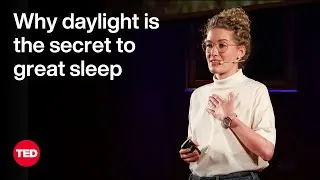Adjectives and Adverbs in English - 5 Levels of Difficulty
英文形容詞和副詞的5個難度階等
144,029 views ・ 2021-06-03
請雙擊下方英文字幕播放視頻。
00:01
Hi, I’m Liam. Welcome to Oxford
Online English! In this lesson,
0
1840
4960
嗨,我是Liam。歡迎來到Oxford
Online English!在本節課裡,
00:06
you can learn about using
adjectives and adverbs in English.
1
6800
3680
您可以學到英文形容詞和副詞的使用。
00:11
You’ll see how to use different types of
adjectives or adverbs in an English sentence.
2
11120
4800
您會看到怎麼在一個英文句子裡
使用形容詞和副詞的不同類型。
00:16
To see more free English lessons, visit our
website: Oxford Online English dot com. You
3
16720
5600
要看更多的免費英文課程,參觀我們的
網站:Oxford Online English dot com。
00:22
can also book English classes with
our fully-qualified teachers, who can
4
22320
3840
您也可以在我們有完整資質的
老師那裡預訂英文課程,他們可以
00:26
help you with your English speaking, writing,
IELTS preparation, or whatever else you need.
5
26160
5520
在英文口說、寫作、雅思考試準備或
其他任何您需要的部分幫到您。
00:32
This is a ‘5 levels’ lesson. That
means you’ll see five sections.
6
32720
3520
這是一節“5 levels”課程。那意味著
您會看到五個單元。
00:36
Each section will give you a challenge. Each
section is more difficult than the previous ones.
7
36800
4880
每個單元都會給您帶來一個挑戰。
每一個單元都要比之前的單元更難。
00:42
Level one is beginner, so if you’re not
a beginner, you should skip to level two.
8
42560
4400
第一階適合初學者,所以如果您
不是一個初學者,您要跳到第二階。
00:47
Ready? Let’s go!
9
47920
4890
準備好了嗎?我們開始吧!
00:52
Look at five sentences.
10
52810
2099
看五個句子。
00:56
Each sentence contains one adjective, and one
adverb. Can you find them? Pause the video,
11
56424
6536
每個句子包含有一個形容詞和一個
副詞。您能找出它們嗎?
01:02
and find the adjective and the
adverb in each sentence. Do it now!
12
62960
4320
暫停影片,找到每個句子裡的形容詞和副詞。
現在開始做!
01:10
Ready? Let’s check.
13
70240
1600
準備好了嗎?我們來檢查一下。
01:15
Adjectives often come before a noun,
as in ‘old town’ or ‘Italian bakery’.
14
75120
6320
形容詞通常置於一個名詞的前面,
像“old town”或“Italian bakery”。
01:22
Adjectives can also come after a noun, often
after a verb like ‘be’, as in ‘it was cloudy’.
15
82400
7680
形容詞也可以置於一個名詞後面,通常是
在一個動詞的後面,像“be”,像是在“it was cloudy”。
01:31
You could also put an adjective after
a noun using other linking verbs,
16
91440
4000
您也可以在一個使用其他連綴動詞
的名詞後面加一個形容詞,
01:35
like ‘get’, ‘become’ or ‘look’.
For example: ‘It’s getting dark.’
17
95440
5040
像“get”、“become”或“look”。
例如:“It’s getting dark.”
01:41
Adjectives only do one thing: they describe
nouns. An adjective *always* links to a noun.
18
101760
7200
形容詞只做一件事情:他們描述名詞。
一個形容詞*總是*連綴到一個名詞。
01:50
Adverbs can be harder to find,
because they do many different jobs.
19
110560
4160
副詞可能是比較難找的,
因為他們擔當很多不同的工作。
01:55
Many adverbs end in -ly,
like ‘probably’ or ‘lightly’.
20
115760
4800
很多副詞字尾用 -ly結尾,
像“probably”或“lightly”。
02:01
However, many adverbs don’t,
like ‘well’ or ‘ever’.
21
121280
4240
然而,很多副詞不是這樣的,
像“well”或“ever”。
02:06
Also, adverbs do many different jobs. They
can describe verbs, adjectives, or situations.
22
126800
7120
副詞也擔當很多不同的工作。他們可以
描述動詞、形容詞或情形。
02:15
To use adjectives and adverbs well in English, you
should know how to recognise them in a sentence.
23
135040
5120
要使用好英文形容詞和副詞,您
要知道怎麼在一個句子裡識別出它們。
02:21
If that’s clear, then let’s move on to level two!
24
141040
2880
如果那清楚了,那麼我們進入到第二階!
02:27
Here’s your challenge for level two.
25
147040
1840
這裡有給您的第二階挑戰。
02:31
Here, your job is to put the adjectives
and adverbs in the right places.
26
151360
4880
在這裡,您的作業是把形容詞
和副詞置於正確的地方。
02:36
You can’t add any punctuation. That means there’s
only one possible answer for each sentence,
27
156960
6960
您不能添加任何標點符號。那意味著每個
句子僅有一個可能的答案,
02:44
except sentence five, where there’s
at least one more possibility.
28
164960
4880
除了至少還有一種可能性的句五。
02:51
Pause the video and think about it now!
29
171040
2320
現在暫停影片,考慮它們!
02:55
Could you do it? Let’s take a look.
So, what do you need to know here?
30
175760
6960
您可以完成嗎?我們看一下。
所以,在這裡您需要做什麼?
03:03
There are rules for word order
for both adjectives and adverbs.
31
183440
3920
有形容詞和副詞二者
單字順序的規則。
03:08
The rules for adjectives are simpler,
because adjectives always link to a noun.
32
188000
4720
形容詞的規則是簡單的,
英文形容詞總是連綴到一個名詞。
03:13
As you saw in level one, the
adjective either goes before the noun,
33
193280
4240
如同您在第一階看到的,形容詞
不是置於名詞的前面,就是
03:17
or after the noun with a linking verb like ‘be’.
Rules for adverbs are more complicated,
34
197520
8560
在一個使用像“be”一樣的連綴動詞
的名詞後面。副詞的規則是很複雜的,
03:26
because different kinds of adverbs
need to go in different positions.
35
206080
3760
因為不同類型的副詞要
置於不同的位置。
03:30
Sometimes, an adjective and an
adverb can have the same form.
36
210800
4160
有時,一個形容詞和一個副詞
可以有相同的形式。
03:35
For example, ‘enough’ can be
an adjective or an adverb.
37
215920
4880
例如,“enough”可以是一個形容詞
或一個副詞。
03:40
If it’s an adjective, it goes before the
noun, as in: ‘We don’t have enough time.’
38
220800
5040
如果它是一個形容詞,它置於名詞的前面,
像是在:“We don’t have enough time.”
03:48
If it’s an adverb, it goes after the verb or verb
phrase. For example: ‘He didn’t run fast enough.’
39
228960
6720
如果它是一個副詞,它置於動詞或一個動詞片語
後面。例如:“He didn’t run fast enough.”
03:58
This is a useful rule for adverb word order. If
an adverb describes a verb, then it normally goes
40
238160
6880
這是一個對副詞單字順序有用的規則。如果
一個副詞描述一個動詞,那麼,正常來說,
04:05
after the verb or verb phrase. You can
see this in sentences two and three.
41
245040
5680
它置於動詞或動詞片語後面。您可以在
句二和句三裡看到這個。
04:12
If this is confusing for you, you should
learn about the different types of adverb,
42
252640
4960
如果這會讓您混淆,您要學習
副詞的不同類型,
04:17
and where to put them in a sentence.
43
257600
1760
以及把它們置於句子的哪個位置。
04:20
It’s also important that you can tell the
difference between adjectives and adverbs.
44
260960
4720
您能判斷出形容詞和副詞之間的
區別也是重要的。
04:26
Remember that the same word,
like ‘fast’ or ‘enough’,
45
266320
3760
記住相同的單字,
像是“fast”或“enough”,
04:30
could be an adjective or an adverb in
different sentences. You can’t tell just
46
270080
5920
在不同的句子裡,可以是一個形容詞
或一個副詞。您不能只
04:36
by looking at the word; you have to look at
the whole sentence and understand the meaning.
47
276000
5840
通過看單字來判斷;您必須看整個
句子並理解它的意思。
04:42
Now, let’s go to level three!
48
282480
1760
現在,我們進入第三階。
04:47
Here are your sentences.
Your job is simple:
49
287520
5200
這是您的句子。
您的作業是簡單的:
04:52
choose the correct word in each sentence.
Pause the video now and find your answers.
50
292720
5440
在每一個句子裡選擇正確的單字。
現在暫停影片,開始找出您的答案。
05:01
Did you do it? Even if it’s difficult,
spend some time thinking about it.
51
301280
4880
您做好了嗎?假如它是難的,
花點時間考慮它。
05:06
Take more time if you need!
OK, let’s see the answers now.
52
306160
6400
如果您需要,可以花更多的時間!
好了,我們現在看一下答案。
05:14
Did you get the right answers? Is anything
confusing? Let’s see what’s going on here.
53
314960
5840
您答對了嗎?有任何事情是混淆的嗎?
我們來看看這裡是怎樣的。
05:21
First point: not all adverbs end in
-ly, and sometimes, a word can have
54
321600
7040
要點一:不是所有的副詞字尾用-ly結尾,
有時,一個單字可以有兩種
05:28
two forms – like ‘hard’ and ‘hardly’, or ‘direct’
and ‘directly’ – and *both* of them are adverbs.
55
328640
9200
形式——像“hard”和“hardly”,或“direct”
和“directly”——它們*二者*都是副詞。
05:38
In sentence one, ‘hard’ and ‘hardly’ are both
adverbs, but they have different meanings.
56
338880
6160
在句一,”hard“和”hardly“兩個都是副詞,
但是,它們意思不一樣。
05:45
Do you know what they mean?
‘Hardly’ means ‘almost never’.
57
345600
5520
您知道它們是什麼意思嗎?
”Hardly“意思是”almost never“。
05:51
If you say ‘She hardly ever raises her voice’,
you mean that she almost never raises her voice.
58
351120
5360
如果您說”She hardly ever raises her voice“,
您意思是她從來不會提高她的聲音。
05:57
‘Hard’ as an adverb means ‘intensely’.
59
357680
2800
"Hard"作為一個副詞意思是”intensely“。
06:02
What about ‘direct’ and ‘directly’?
Here, it’s slightly different.
60
362000
3840
那”direct“和”directly“呢?
在這裡,有一點區別。
06:06
Both mean that you go somewhere without stopping,
but they’re used in different contexts. In most
61
366720
5760
二者意思是您不停留地去某個地方,
但是,它們使用於不同的上下文。在大部分的
06:12
contexts, you say ‘directly’. For example: ‘I
walked directly over to him and told him to stop.’
62
372480
7360
上下文裡,您說”directly“。例如:”I walked
directly over to him and told him to stop.“
06:21
But, if you’re talking about public
transport, then you use ‘direct’, without -ly.
63
381600
6480
但是,如果您在談論公共交通,
那麼您使用”direct“,沒有-ly。
06:28
For example, if you take a train from
Berlin to Moscow without changing trains,
64
388080
4960
例如,如果您從柏林搭乘火車
到莫斯科,不用換乘火車,
06:33
then you can say you went
*direct* from Berlin to Moscow.
65
393040
3680
那麼您可以說您從柏林
*直接*到莫斯科。
06:38
In sentence three, is ‘sickly’
an adjective or an adverb?
66
398960
4560
在句三,”sickly“是
一個形容詞還是一個副詞?
06:46
It’s an adjective. Adjectives can also end in -ly.
‘Sick’ and ‘sickly’ are both adjectives, but they
67
406160
8720
那是一個形容詞。形容詞字尾也可以用-ly結尾。
”Sick“和”sickly“二者都是形容詞,但是,
06:54
have different meanings. ‘Sick’ means ill, as
in: ‘I can’t come to work today. I feel sick.’
68
414880
6960
它們有不同含義。”Sick“意思是病了,像是在:
”I can’t come to work today. I feel sick.“
07:03
‘Sickly’ describes someone who is unhealthy and
who gets ill easily. For example: ‘She was a very
69
423920
6720
”Sickly“描述某人身體不好,容易生病。
例如:”She was a very
07:10
sickly child. She seemed to get ill every month.’
In sentence four, ‘late’ is an adverb, meaning the
70
430640
8240
sickly child. She seemed to get ill every month.“
在句四,”late“是一個副詞,意思與
07:18
opposite of ‘early’. ‘Lately’ is also an adverb,
but it means ‘recently’, and it doesn’t fit here.
71
438880
6480
”early“相反。”Lately“也是一個副詞,
但是,它意思是”recently“,它不適用於這裡。
07:27
In sentence five, ‘flatly’ and
‘straight’ are both adverbs.
72
447920
5360
在句五,”flatly“和“straight”
兩個都是副詞。
07:34
What’s the point here? The most important thing
is that you can’t tell by looking at a word
73
454560
6080
在這裡要點是什麼?最重要的事情是
您不能通過看一個單字來判斷
07:40
whether it’s an adjective or an adverb. Many
words can be both. Adjectives and adverbs
74
460640
6480
它是一個形容詞,還是一個副詞。
很多單字可以是這二者。形容詞和副詞
07:47
can have the same form. Sometimes,
words which look like they should
75
467120
4480
可以有相同的形式。有時,
看上去它們肯定是相關聯的
07:51
be related – like ‘hard’ and ‘hardly’ –
can have completely different meanings.
76
471600
4560
單字——像“hard”和“hardly”——
可以有完全不同的意思。
07:57
Don’t focus on the words; focus on
the sentences and what they mean.
77
477760
4320
不要盯住單字,要這種看
句子和它們意思是什麼。
08:02
The same word in a different sentence
could have a completely different meaning.
78
482080
4240
同一個單字在不同的句子裡
可以有一個完全不同的意思。
08:07
Ready to move on? Remember that you can
always review a level if you need to.
79
487680
5120
準備好繼續了嗎?記住,如果您需要,
您總是可以再複習一個階等。
08:16
So, what’s happening here? Can you guess?
80
496560
2640
那麼,在這裡發生了什麼?
您可以猜一下嗎?
08:21
Do these sentences look right to you? They aren’t!
Each sentence has one mistake. The mistakes
81
501600
8080
您覺得這些句子看起來是對的嗎?它們不是!
每一個句子都有一個錯誤。錯誤
08:29
relate to adjective or adverb use. Your job
is to find the mistakes and correct them.
82
509680
5760
與形容詞或副詞的使用有關。您的作業是
找到錯誤並修正它們。
08:36
Try to think about *why* these sentences
are wrong. Could you explain the problem?
83
516240
4960
試下考慮*為什麼*這些句子是錯的。
您可以解釋問題嗎?
08:43
Anyway, pause the video now, and think
about your ideas. Take your time.
84
523440
4800
隨便,現在暫停影片,考慮您的
想法。您隨意。
08:51
OK? Let’s look together.
85
531120
2720
好了嗎?我們一起來看看。
08:55
In sentence one, ‘amazing’ is a strong adjective.
You can’t use ‘very’ with a strong adjective.
86
535840
6960
在句一,“amazing”是一個很強烈的形容詞。
您不能使用“very”搭配一個強烈的形容詞。
09:03
You can use ‘really’ or
‘absolutely’. So, you could also say
87
543840
4400
您可以使用“really”或
“absolutely”。所以,您也可以說
09:08
‘It was an absolutely amazing experience.’
Do you know any other strong adjectives?
88
548240
6800
“It was an absolutely amazing experience.”
您知道其他表達強烈的形容詞嗎?
09:17
There are many, but you could say adjectives
like ‘freezing’, ‘incredible’ or ‘delighted’.
89
557360
5440
有很多,但是,您可以說像是“freezing”、
“incredible”或“delighted”的形容詞。
09:24
In sentence two, if you have more
than one adjective before a noun,
90
564080
4240
在句二,如果在一個名詞
前面有不止一個形容詞,
09:28
then the adjectives need
to go in a specific order.
91
568320
2800
那麼,形容詞需要有一個特定的順序。
09:32
The most important rule to remember is
that adjectives which give an opinion
92
572000
4160
要記住的最重要的規則是給出一個
觀點的形容詞會置於
09:36
go before adjectives which describe a fact.
That’s why ‘lovely’ needs to go before ‘small’.
93
576160
6080
描述一個事實的形容詞之前。
那就是為什麼“lovely”需要置於“small”的前面。
09:45
In sentence three, there’s a
useful rule which you can use.
94
585040
3280
在句三,這裡有一個您可以
運用的有用規則。
09:49
If you’re deciding where an adverb
– like ‘sometimes’ – can go,
95
589120
3920
如果您用一個副詞——像是“sometimes”
——描述可以去的地方,
09:53
and the verb has two parts – like ‘can be’ –
then the adverb *always* goes in the middle.
96
593920
10320
並且動詞有兩部分——像“can be”——
那麼,副詞*總是*置於中間。
10:04
In sentence four, can you explain the
problem? Let’s change the sentence a little.
97
604240
5520
在句四,您可以解釋問題嗎?
我們來稍微改變一下句子。
10:12
This sentence is fine. You don’t need to
add ‘people’ to make it correct. Why not?
98
612320
7040
這個句子是可以的。您不需要添加
“people”來讓它正確。為什麼不?
10:22
Some adjectives can also be
used as nouns. ‘Egyptian’
99
622000
3680
有些形容詞也可以擔當名詞使用。“Egyptian”
可以是一個形容詞
10:25
can be an adjective or a noun. ‘Spanish’ is
only an adjective, so it needs a noun after it.
100
625680
6160
或一個名詞。“Spanish”僅僅是一個形容詞,
所以需要置於一個名詞之前。
10:32
With words for nationalities, words which end
in A-N can be used as adjectives or nouns:
101
632800
6240
就那些國籍的單字來說,那些字尾用A-N結尾的單字
可以擔當形容詞或名詞使用:
10:39
German, Russian, Australian, Brazilian, and
so on. There are a few other words which
102
639040
6400
German、Russian、Australian、Brazilian
等等。有幾個不適用於這一規則
10:45
don’t fit this pattern, but can also be used as
adjectives or nouns, like ‘Greek’ or ‘Kazakh’.
103
645440
7360
的單字,但是,也可以擔當形容詞或
名詞使用,像是“Greek”或“Kazakh”。
10:54
So, you can say: ‘There are many
Greeks living in Australia.’
104
654080
5760
所以,您能說:“There are many
Greeks living in Australia.”
11:00
If you aren’t sure whether a word can be used as
a noun or not, then just add a noun afterwards.
105
660960
5280
如果您不確定一個單字是否可以當作一個
名詞使用,那麼就在後面加一個名詞。
11:06
You can also say: ‘There are many Greek people
living in Australia.’ It’s totally correct.
106
666880
6960
您也可以說:“There are many Greek people
living in Australia.”那是完全正確的。
11:14
In sentence five, you have a compound adjective:
107
674880
3360
在句五,您有一個複合形容詞:
11:18
‘two-year-old’, which is made
by combining other words.
108
678240
3600
“two-year-old”,是由其他單字
組成的。
11:22
Compound adjectives are often made with a number,
109
682640
3280
複合形容詞通常用一個數字組成,
11:25
like ‘a six-hour flight’ or ‘a
three-hundred-dollar ticket’.
110
685920
3920
像是“a six-hour flight”或
”a three-hundred-dollar ticket.“
11:31
If you make a compound adjective with a number,
111
691280
2960
如果您用一個數字組成一個
複合形容詞,
11:34
*don’t* add an -s to the other parts of
the adjective. It’s a common mistake.
112
694240
4960
*不要*添加一個 -s 到形容詞的其他部分。
那是一個常見的錯誤。
11:41
Now, let’s look at the
hardest challenge: level five!
113
701200
4240
現在,我們看看最難的挑戰:
第五階!
11:49
Level five will test everything you’ve
seen so far. Here are your sentences.
114
709040
7120
第五階會測試您之前看到過的
每一個要點。這裡是您的句子。
11:56
Only one of these sentences is correct. Four
have problems – possibly just one mistake,
115
716160
5600
這些句子裡只有一個是正確的。四個
有問題——有可能就一個錯誤,
12:01
or maybe more than one! Your job
is to find the correct sentence,
116
721760
4240
或者也許多於一個!您的作業
是找到正確的句子,
12:06
and correct the mistakes in the other
four. Pause the video and do your best!
117
726000
4880
並修正其他四個裡面的錯誤。
暫停影片,努力一下!
12:13
Ready? How did you do? Which
sentence do you think is correct?
118
733760
4880
準備好了嗎?您做得怎樣?
您覺得哪一個句子是正確的?
12:21
Sentence two is correct; the
other four have problems.
119
741280
3600
句二是正確的;
其他四個有問題。
12:25
Surprised? Some people might tell you that
sentence two is wrong, because you should use an
120
745920
5280
吃驚嗎?一些人也許會告訴您
句二是錯的,因為您要使用
12:31
adverb: ‘I’m doing well’. However, in colloquial
speech, it’s common to say ‘I’m doing good.’
121
751200
6640
一個副詞:”I’m doing well.”然而,在口說裡,
那常見於說“I’m doing good.”
12:39
What about the other four? Let’s look.
122
759200
2480
那其他四個呢?我們來看看。
12:42
In sentence one, you should say:
‘We went deep into the forest.’
123
762400
4480
在句一,您要說:
“We went deep into the forest.”
12:49
‘Deep’ and ‘deeply’ are both adverbs,
124
769840
3120
“Deep”和“deeply”兩個都是副詞,
12:53
but if you’re talking about a
place, you can only use ‘deep’,
125
773920
4480
但是如果您在談論一個地方,
您僅能使用“deep”,
12:58
meaning ‘far into’. ‘Deeply’ describes how you
do something. Here, you’re talking about a place,
126
778400
8080
意思是“far into”。“Deeply”描述您怎樣做某事。
在這裡,您在談論一個地方,
13:06
because you’re saying *where* you went, or, more
specifically, *how far* into the forest you went.
127
786480
6000
因為您在說您去了*哪裡*,或者,更特指
的是,您進到森林裡有*多遠*。
13:14
In sentence three, you need to say
‘a *lone* criminal’, not ‘alone’.
128
794800
5440
在句三,您需要說
“a *lone* criminal”,而不是“alone”。
13:20
Some adjectives change form depending
on whether they’re used before
129
800240
3600
一些形容詞依據它們是在
所描述的名詞之前還是之後
13:23
or after the noun they describe. ‘Lone’
and ‘alone’ have the same meaning,
130
803840
5200
而改變形式。“Lone”
和“alone”有相同的意思,
13:29
but you can only use ‘lone’ before
a noun, and ‘alone’ after a noun.
131
809040
4800
但是您只能在一個名詞前面使用“lone”,
在一個名詞之後使用“alone”。
13:36
In sentence four, ‘rather’
cannot be used in this way.
132
816080
4000
在句四,“rather”
不能按這種方式使用。
13:40
You could say ‘completely wrong’, ‘utterly wrong’
or ‘totally wrong’. There are other possibilities.
133
820880
7360
您可以說“completely wrong”、“utterly wrong”
或“totally wrong”。有其他的可能性。
13:48
‘Rather’ expresses a medium level of something.
134
828240
3360
“Rather”表達某件事情的一個中等的等級。
13:52
For example, if you say ‘It’s rather
cold’, you mean that it’s ‘medium’ cold.
135
832160
4480
例如,如果您說“It’s rather
cold”,您意思是那是“medium”冷。
13:57
However, ‘wrong’ is *ungradable*. It’s a binary
idea: either something is wrong, or it isn’t.
136
837600
7280
然而,“wrong”是*不可分級的*。那是一個
二元概念:某件事情是錯的,或不是。
14:05
You can’t have different levels of wrong.
137
845600
2560
您不能有錯誤的不同等級。
14:10
Finally, in sentence five, the first problem
is with word order and adverb position.
138
850640
5200
最後,在句五,第一個問題是
單字順序和副詞位置。
14:16
The second problem is that there’s a double
negative. ‘Hardly’ means ‘almost not’,
139
856400
4720
第二個問題是有雙重否定。
“Hardly”意思是“almost not”,
14:21
so it includes a logical negative. You can’t
use ‘hardly’ and ‘didn’t’ together. The most
140
861120
5440
所以它包括一個邏輯的否定。您不能
同時使用“hardly”和“didn’t”。
14:26
likely correct sentence is: ‘Unfortunately,
they hardly prepared for their presentation,
141
866560
5120
有可能最正確的句子是:“Unfortunately,
they hardly prepared for their presentation,
14:31
and unsurprisingly it was an utter disaster.’
There are other possible positions for the
142
871680
7440
and unsurprisingly it was an utter disaster.”
副詞有其他可能的位置。
14:39
adverbs. For example, ‘unsurprisingly’
could go at the end of the sentence.
143
879120
5280
例如,“unsurprisingly”
可以置於句末。
14:46
How did you do? Using adjectives
and adverbs correctly is complex,
144
886720
5040
您做得怎樣?正確地使用形容詞
和副詞是複雜的,
14:52
and there are many things you need to think
about to use this language to a high level.
145
892320
4480
要在一個高階等使用這門語言,
有很多您要考慮的事情。
14:57
If this lesson was hard for
you, don’t worry! In each level,
146
897680
4240
如果本節課對您來說是難的,
不用擔心!在每一個階等,
15:01
we mention topics which you need to know to
understand the sentences and the exercises.
147
901920
5360
我們提到了您需要知道的要
理解句子的主旨,以及練習。
15:08
Choose one or two topics, and work on
them. Don’t try to do everything at once!
148
908320
5440
選擇一個或兩個主題,並聚焦在它們。
不要一次就試每一樣東西!
15:15
That’s all. Thanks for watching!
149
915280
1760
就這樣!感謝觀看!
15:17
See you next time!
150
917680
8160
下次見!
New videos
關於本網站
本網站將向您介紹對學習英語有用的 YouTube 視頻。 您將看到來自世界各地的一流教師教授的英語課程。 雙擊每個視頻頁面上顯示的英文字幕,從那裡播放視頻。 字幕與視頻播放同步滾動。 如果您有任何意見或要求,請使用此聯繫表與我們聯繫。







